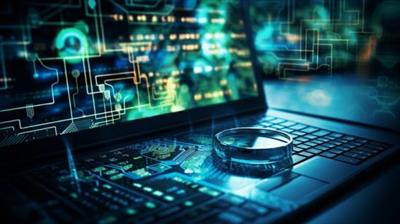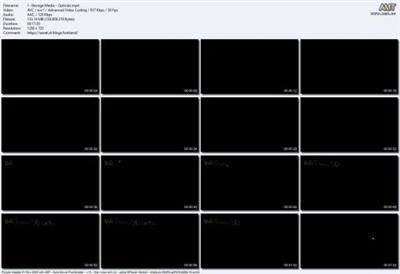Computer Forensics and Incident Response (CFIR): From Basics
Computer Forensics and Incident Response (CFIR): From Basics
![Computer Forensics and Incident Response (CFIR): From Basics]()
Master computer forensics; digital investigation! Learn DFIR skills, evidence acquisition, analysis with top tools.
What you'll learn
Understanding different types of storage media: optical disks, USBs, SD cards, HDDs, and SSDs.
How to create bootable forensic media for live incident responses.
Step-by-step guidance on the computer boot process and key forensic points.
Essentials for on-scene investigations, including must-have forensic tools and supplies.
Differentiating live vs. post-mortem acquisition for effective data recovery.
Best practices for evidence acquisition with FTK Imager.
Basics of Linux file systems and disk management for forensic analysis.
Disk scanning and write-blocking techniques to prevent evidence tampering.
Techniques for maintaining evidence integrity during and after acquisition.
Working with DC3DD for advanced disk imaging (Part 1).
Techniques for creating split image files and performing hash verifications.
Using Guymager for efficient and secure imaging of digital media.
Conducting memory acquisition on Windows systems for deeper forensic analysis.
Essential resources for memory and disk forensics.
Getting started with the Volatility Framework for memory analysis.
Requirements
No requirements or prerequisites
Description
Unlock the secrets of computer forensics and digital investigations with this advanced, hands-on course designed to empower you with the skills needed to excel in the Digital Forensics and Incident Response (DFIR) field. Whether you're aiming to master on-scene investigations, digital evidence acquisition, memory analysis, or dive deep into forensic tools like FTK Imager and Autopsy, this comprehensive course will equip you with the real-world skills and methodologies used by top forensic professionals.Why Enroll in This Course?In today's digital world, understanding and leveraging digital forensics is a game-changer in solving cybercrimes, securing IT environments, and supporting law enforcement. This course goes beyond the basics, blending theoretical knowledge with practical application, and focuses on real-life scenarios and hands-on exercises that mimic actual crime scenes. With carefully curated lectures, expert-guided modules, and detailed tool demos, you'll gain the confidence to tackle complex investigations and enhance your forensic expertise.What You'll Learn: Foundational Knowledge of Storage Media: Start with the essentials of data storage—from optical media to solid-state drives—and understand the nuances of different media that hold valuable digital evidence. Bootable Forensic Media and Boot Process Analysis: Learn to create bootable forensic media, essential for live investigations, and dive into the boot process, unraveling key stages where critical digital artifacts reside. Field-Ready Forensic Skills: Explore the essentials for on-scene digital investigations, including distinguishing between live and post-mortem acquisition methods and the must-have tools for a successful investigation. Evidence Acquisition Mastery: Uncover the best practices for disk and memory imaging with industry-leading tools like FTK Imager, Guymager, and DC3DD, and gain expertise in evidence integrity and write-blocking techniques to preserve data authenticity. Memory Analysis with Volatility: Delve into memory analysis using the powerful Volatility Framework—understand plugin capabilities, process analysis, and network and DLL examination for a comprehensive memory investigation. Autopsy Tool for Digital Evidence Examination: From downloading sample images to a thorough walkthrough of Autopsy, master this all-in-one forensics platform to gather, examine, and report evidence with precision.
Who this course is for
IT Security Professionals and SOC Analysts looking to broaden their skill set with practical forensic techniques for incident response.
Law Enforcement Personnel and Crime Scene Investigators who want to strengthen their knowledge in digital forensics for criminal investigations.
Forensics Students and Enthusiasts seeking to understand advanced forensics workflows and methodologies.
Tech Savvy Individuals eager to build a solid foundation in digital evidence acquisition and analysis for professional or personal pursuits.
Homepage:
![Computer Forensics and Incident Response (CFIR): From Basics]()
Say "Thank You"
rapidgator.net:
https://rapidgator.net/file/7ea9e321560054650d1a5df0ec4c2b5e/pcsrg.Computer.Forensics.and.Incident.Response.CFIR.From.Basics.part1.rar.html
https://rapidgator.net/file/1c9d2c77d16a9b214b02b6a03d0d7295/pcsrg.Computer.Forensics.and.Incident.Response.CFIR.From.Basics.part2.rar.html
ddownload.com:

Published 11/2024
MP4 | Video: h264, 1280x720 | Audio: AAC, 44.1 KHz, 2 Ch
Language: English | Duration: 3h 42m | Size: 1.48 GB
MP4 | Video: h264, 1280x720 | Audio: AAC, 44.1 KHz, 2 Ch
Language: English | Duration: 3h 42m | Size: 1.48 GB
Master computer forensics; digital investigation! Learn DFIR skills, evidence acquisition, analysis with top tools.
What you'll learn
Understanding different types of storage media: optical disks, USBs, SD cards, HDDs, and SSDs.
How to create bootable forensic media for live incident responses.
Step-by-step guidance on the computer boot process and key forensic points.
Essentials for on-scene investigations, including must-have forensic tools and supplies.
Differentiating live vs. post-mortem acquisition for effective data recovery.
Best practices for evidence acquisition with FTK Imager.
Basics of Linux file systems and disk management for forensic analysis.
Disk scanning and write-blocking techniques to prevent evidence tampering.
Techniques for maintaining evidence integrity during and after acquisition.
Working with DC3DD for advanced disk imaging (Part 1).
Techniques for creating split image files and performing hash verifications.
Using Guymager for efficient and secure imaging of digital media.
Conducting memory acquisition on Windows systems for deeper forensic analysis.
Essential resources for memory and disk forensics.
Getting started with the Volatility Framework for memory analysis.
Requirements
No requirements or prerequisites
Description
Unlock the secrets of computer forensics and digital investigations with this advanced, hands-on course designed to empower you with the skills needed to excel in the Digital Forensics and Incident Response (DFIR) field. Whether you're aiming to master on-scene investigations, digital evidence acquisition, memory analysis, or dive deep into forensic tools like FTK Imager and Autopsy, this comprehensive course will equip you with the real-world skills and methodologies used by top forensic professionals.Why Enroll in This Course?In today's digital world, understanding and leveraging digital forensics is a game-changer in solving cybercrimes, securing IT environments, and supporting law enforcement. This course goes beyond the basics, blending theoretical knowledge with practical application, and focuses on real-life scenarios and hands-on exercises that mimic actual crime scenes. With carefully curated lectures, expert-guided modules, and detailed tool demos, you'll gain the confidence to tackle complex investigations and enhance your forensic expertise.What You'll Learn: Foundational Knowledge of Storage Media: Start with the essentials of data storage—from optical media to solid-state drives—and understand the nuances of different media that hold valuable digital evidence. Bootable Forensic Media and Boot Process Analysis: Learn to create bootable forensic media, essential for live investigations, and dive into the boot process, unraveling key stages where critical digital artifacts reside. Field-Ready Forensic Skills: Explore the essentials for on-scene digital investigations, including distinguishing between live and post-mortem acquisition methods and the must-have tools for a successful investigation. Evidence Acquisition Mastery: Uncover the best practices for disk and memory imaging with industry-leading tools like FTK Imager, Guymager, and DC3DD, and gain expertise in evidence integrity and write-blocking techniques to preserve data authenticity. Memory Analysis with Volatility: Delve into memory analysis using the powerful Volatility Framework—understand plugin capabilities, process analysis, and network and DLL examination for a comprehensive memory investigation. Autopsy Tool for Digital Evidence Examination: From downloading sample images to a thorough walkthrough of Autopsy, master this all-in-one forensics platform to gather, examine, and report evidence with precision.
Who this course is for
IT Security Professionals and SOC Analysts looking to broaden their skill set with practical forensic techniques for incident response.
Law Enforcement Personnel and Crime Scene Investigators who want to strengthen their knowledge in digital forensics for criminal investigations.
Forensics Students and Enthusiasts seeking to understand advanced forensics workflows and methodologies.
Tech Savvy Individuals eager to build a solid foundation in digital evidence acquisition and analysis for professional or personal pursuits.
Homepage:
https://www.udemy.com/course/computer-forensics-course/Screenshots

Say "Thank You"
rapidgator.net:
https://rapidgator.net/file/7ea9e321560054650d1a5df0ec4c2b5e/pcsrg.Computer.Forensics.and.Incident.Response.CFIR.From.Basics.part1.rar.html
https://rapidgator.net/file/1c9d2c77d16a9b214b02b6a03d0d7295/pcsrg.Computer.Forensics.and.Incident.Response.CFIR.From.Basics.part2.rar.html
ddownload.com: